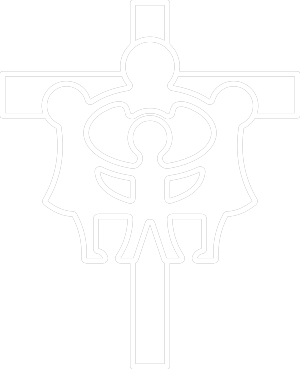Intent
Our RE curriculum is designed to ensure our Christian values and mission statement are deeply embedded in daily school life. The aim of Religious Education in our school is to enable all pupils to understand Christianity as a living faith that has influence on the lives of people worldwide. We also intend for our pupils to understand other significant faiths and world views and their impact on our changing, modern society.
Through our curriculum, we aim to increase tolerance and overcome prejudice and discrimination whilst celebrating diversity in society. The curriculum aims for all pupils to show an informed and respectful attitude to religions and world views while they conduct their own search for God and meaning. Our teaching equips pupils to ask perceptive questions, gives time for reflection whilst allowing them to explore what is right and wrong and investigate a range of moral issues from history and from our world today.
Implementation
Religious Education is embedded in our school curriculum through discrete lessons and daily Worship. Our outstanding provision has a significant impact on pupils’ spiritual, moral and cultural development. We have adapted ‘Questful RE’ from the Blackburn Diocesan Board of Education, supported by ‘Understanding Christianity’. This syllabus is used in all year groups, from EYFS to year 6 to allow continuity, depth of understanding and consistent teaching approaches. Each unit addresses at least one of the seven key Christian concepts (God, Creation, Fall, People of God, Incarnation, Gospel, Salvation and Kingdom of God) and encourages children to ask and answer key questions. The syllabus follows a structure whereby children are given opportunities to discuss initial ideas, explore Bible texts, discover the impact, make the connection and dive deeper. Our long term plan ensures coverage of core Christianity concepts and other significant faiths are taught in each year group.
Impact
The impact of Religious Education is measured in numerous ways. A pupil-friendly record sheet is designed to be used at the end of each unit for self-assessment and for teachers to judge the achievements of each child. There is no specific assessment task for units as every task, potentially, can be assessed and contribute to the expected achievements. The syllabus gives clear suggestions as to how the outcomes of activities can be recorded and this is all used as evidence of pupils’ capabilities. The ladder of expectation and achievement in RE is used to assess the achievements of our pupils. Evidence from this comes from pupils’ books, class discussions and work in the Floorbook. This then correlates to whether they are working towards, within or above the expectations.
- Explain the impact of religion on believers’ lives, identify distinctive beliefs within and between religions, and express their own views.
- Show understanding of and describe, using a wide vocabulary, religious beliefs, actions and values. Begin to apply ideas to situations and experiences.
- Ask important questions, make links between stories and beliefs, begin to identify the impact of religion and make connections to their own experiences.
- Retell stories using religious words to identify features and expressions of religion and begin to ask questions.
- Recall stories, recognise features of religion and talk about their own experiences.
The overall impact of RE is clear through the way our children live their lives through our Christian values in school and in the community.


